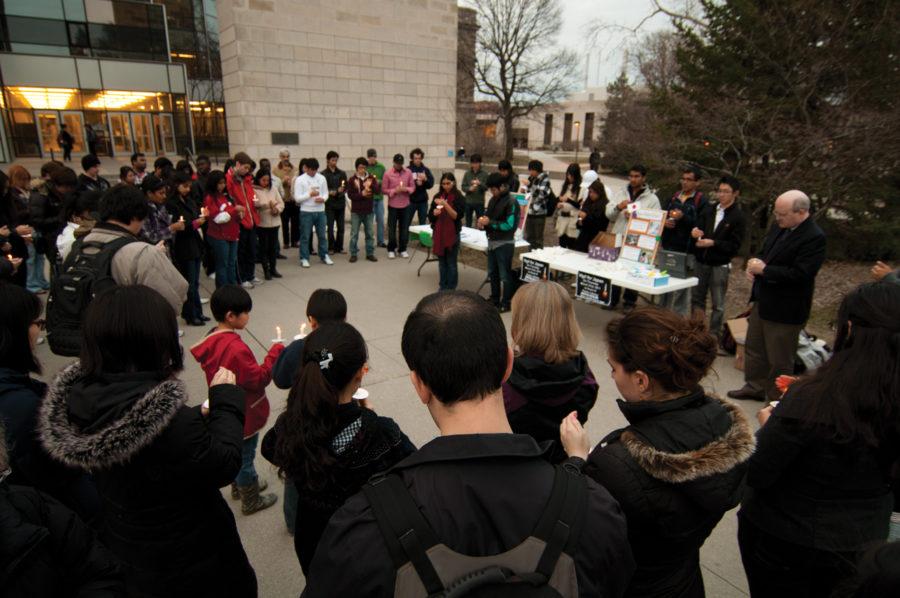Student groups hold vigil for Japan relief
March 31, 2011
Shun Yoshida, senior in aerospace engineering and president of Japanese Association at Iowa State, can still remember the letters he wrote in elementary school to the 1995 earthquake victims of Kobe, Japan.
Thursday, Yoshida sent more than just letters to the victims of the recent earthquake and tsunami that destroyed parts of his home country and created widespread radioactive contamination.
He sent his love.
“It’s not just about the money, but the heart that really helps people,” Yoshida said.
The Japanese Association in collaboration with International Student Council hosted a vigil for Japanese earthquake and tsunami victims Thursday night in front of Parks Library.
One-hundred-eleven people confirmed attendance for the vigil on Facebook.
Those who attended the vigil could purchase candles for $1, write a message to victims on a poster or send them a video message that would later be uploaded to YouTube.
All of the proceeds went to the American Red Cross for Japan Relief.
James Dorsett, program manager of the International Students and Scholars Office, made a speech on behalf of his office saying that they appreciated everyone who attended the event.
“The vigil is here for us to honor the dead and missing,” Dorsett said, continuing to speak about the gift of giving something to the victims and supporting students and scholars at Iowa State.
More than 9,000 have died, 12,000 remain missing and 452,000 have been evacuated, with essentials like food, medication and fuel running low. Fifteen minutes of the vigil were dedicated to standing in silence in remembrance of the victims of the disasters.
Scott Byrd, junior in history and humanitarian awareness director for the International Student Council, said the council sent out a helping hand to Yoshida once they found out about the disasters in Japan.
They brainstormed ways in which they could help, and the vigil seemed like the best fit, he said.
A poster promoting the International Student Council during VEISHEA displayed on a table behind Yoshida read, “It is Japanese custom to fold and string 1,000 paper cranes during difficult times that by doing so illness may be cured and that prayers will be heard.”
The few paper cranes that decorated a donations box, which vigil attendees put money in after picking up their candles, represented a sign of support, and the people who showed up to the event, including children, wrote on the poster for victims as they left with their candles.

















